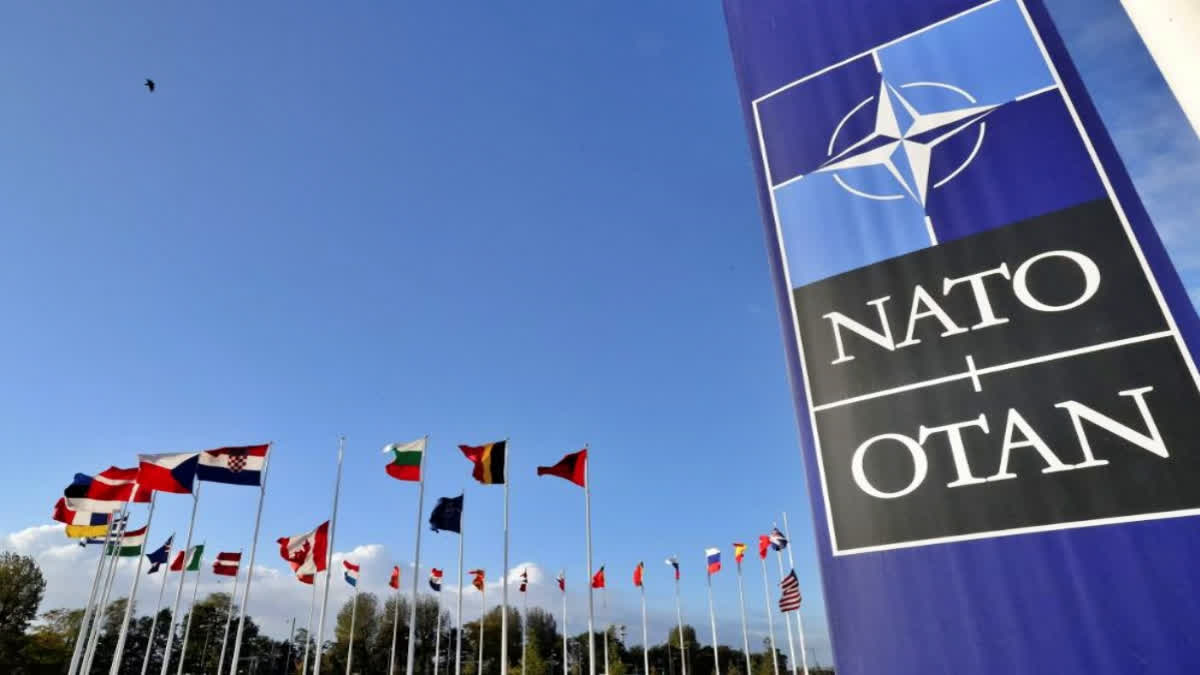New Delhi: The NATO summit in Vilnius, Lithuania, earlier this month has heralded a significant turning point for the military alliance, presenting both opportunities and challenges for the world at large, including India. As NATO strengthens its position amid the ongoing conflict between Russia and Ukraine and sets its sights on the Indo-Pacific, it raises questions about regional stability and the potential impact on India's extended neighbourhood.
The conflict sparked by Russia’s invasion of Ukraine in February 2022 has proven to be a boon of sorts for NATO in several ways. The alliance has capitalised on the situation, attracting new members and smoothing over internal differences as nations rally together in response to the crisis. The conflict has also opened up new theatres where NATO could potentially play a role, extending its influence and reach.
The NATO's expansion has been evident in its acceptance of traditionally neutral Finland and Turkey’s dropping of opposition to Sweden's candidacy. This expansion signals the alliance’s growing influence and appeal, even in regions that were previously hesitant to join. Turkey’s role as a mediator between Russia and Ukraine has also strengthened its standing within NATO, despite earlier critiques of its policy choices. Additionally, the conflict has prompted European nations like Germany to increase their defence budgets, fostering greater cooperation and easing tensions with the US.
As NATO looks beyond its traditional European focus, it has expressed concerns over China in its declaration, signaling a potential shift towards the Indo-Pacific. In the communique issued after the summit in Lithuania, China is mentioned as many as 16 times. “The People’s Republic of China’s stated ambitions and coercive policies challenge our interests, security and values,” the NATO communique stated.
“The PRC employs a broad range of political, economic, and military tools to increase its global footprint and project power, while remaining opaque about its strategy, intentions and military build-up. The PRC’s malicious hybrid and cyber operations and its confrontational rhetoric and disinformation target Allies and harm Alliance security.”
In fact, as early as April 2022, China had sounded alarm bells over NATO’s growing interest in the Indo-Pacific. “NATO had not been much involved in the Asia-Pacific affairs for quite a long time in the past,” Lu Xiang a research fellow at the Chinese Academy of Social Sciences, had written in an article in the Global Times, a daily tabloid newspaper published under the Chinese Communist Party that comments on international issues with Chinese ultra-nationalistic perspective. “But in recent years, it has been emphasising the so-called China threat with its tentacles reaching out to this region. The unprecedented increase in NATO’s interest in Asia-Pacific affairs means that NATO may be trying to establish itself as a global organisation, and indeed signs of this tendency have been noticed recently.”
